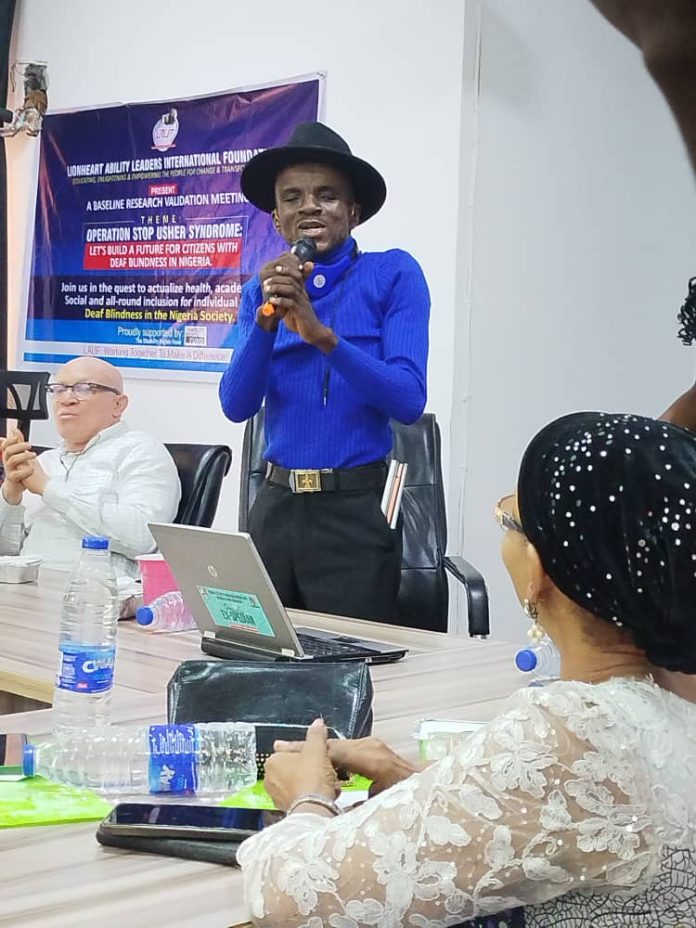A non-governmental organization focused on disability rights, Lionheart Ability Leaders International Foundation(LALIF), has called for urgent collaborative partnerships with government agencies and health policymakers to raise awareness about Usher Syndrome, the leading cause of combined vision and hearing loss worldwide. The organization emphasized that coordinated action is essential to curbing the syndrome’s spread and enhancing genetic testing and counseling for its identification, prevention, and management.
The call was made by Mr. Solomon Okelola, the Founding Executive Director of Lionheart Ability Leaders International Foundation, during a medical research validation meeting held in Ikeja, Lagos, on September 10, 2024. He highlighted the pressing need for action, stressing that the lack of awareness among medical practitioners and the absence of adequate testing equipment could lead to a silent but steady increase in the prevalence of Usher Syndrome in Nigeria.
According to Okelola, a recently concluded baseline survey conducted by Lionheart Ability Leaders International Foundation, in collaboration with Desire Health Inclusive Organization, and supported by the Disability Rights Fund, revealed alarming gaps in the knowledge of Usher Syndrome among medical professionals in Lagos. The survey found that healthcare workers were largely unaware of the syndrome, its causes, symptoms, and devastating effects on individuals’ physical and emotional well-being.
“Medical practitioners don’t know how to identify or communicate with individuals who are deaf or deaf-blind, many of whom may be affected by Usher Syndrome,” Okelola stated. “This lack of awareness impedes their ability to provide necessary healthcare services, exacerbating the challenges faced by affected individuals.”
He further warned that without proper knowledge and equipment for testing, the true prevalence of Usher Syndrome remains hidden. The result, Okelola said, is a potential surge in cases of deaf-blindness from so-called “unknown causes,” likely attributable to Usher Syndrome. The situation is exacerbated by the syndrome’s genetic nature, making it difficult to detect in carriers who show no physical signs.
Drawing a parallel with sickle cell anemia, Okelola explained how Usher Syndrome spreads through genetic inheritance. Like sickle cell carriers who are unaware of their condition until it manifests in their offspring, Usher Syndrome carriers can unknowingly pass on the syndrome to their children, leading to severe vision and hearing loss, as well as balance problems.
“Unfortunately, while it is possible to test for sickle cell traits, Nigeria lacks the capacity to test for the defective genes responsible for Usher Syndrome. This leaves us handicapped in our efforts to curb its spread,” Okelola explained.
He urged the government and health policymakers to work together to raise public awareness about the syndrome and empower healthcare professionals through genetic testing and counseling. He also called for the deployment of well-trained disability support agents in public hospitals and primary healthcare centers to bridge communication gaps between healthcare workers and persons with disabilities, particularly the deaf and deaf-blind.
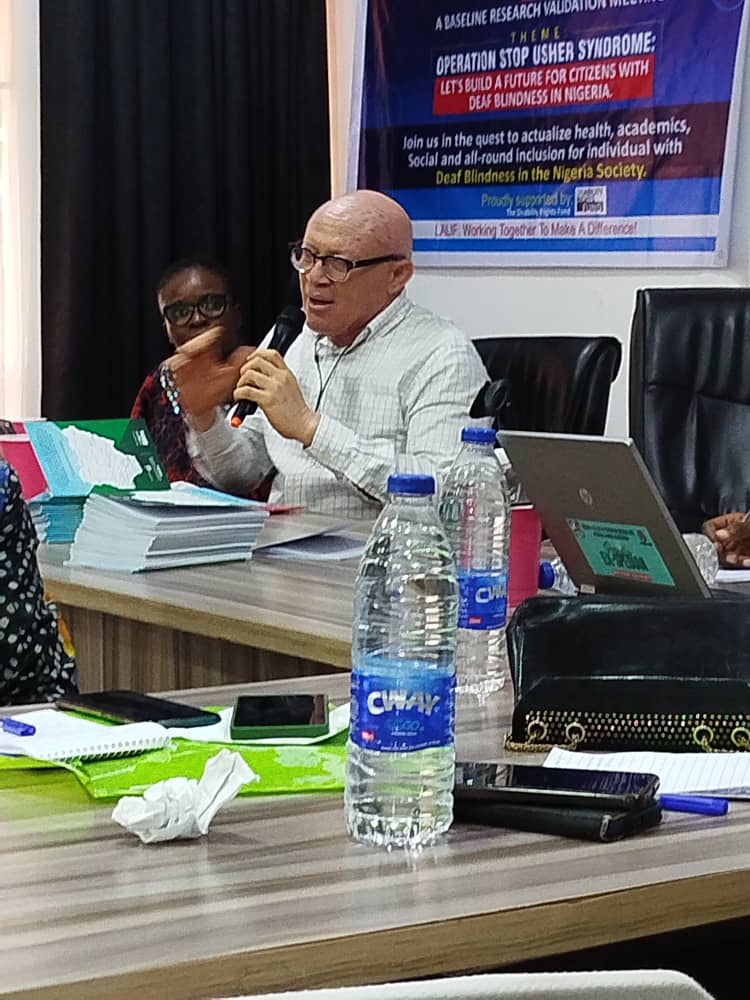
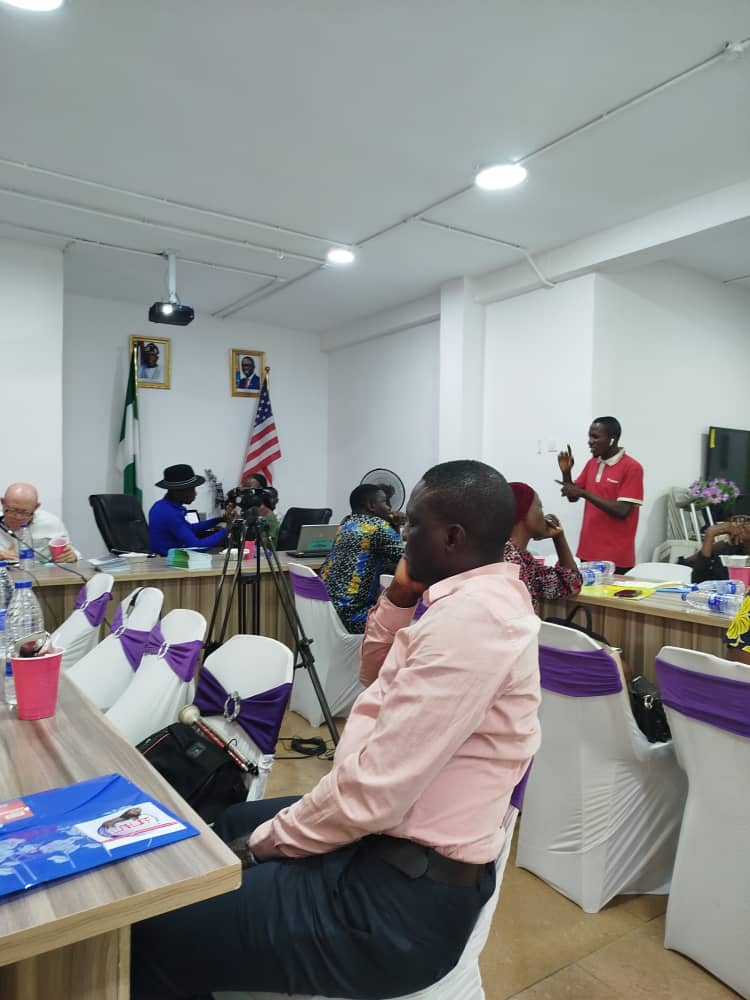
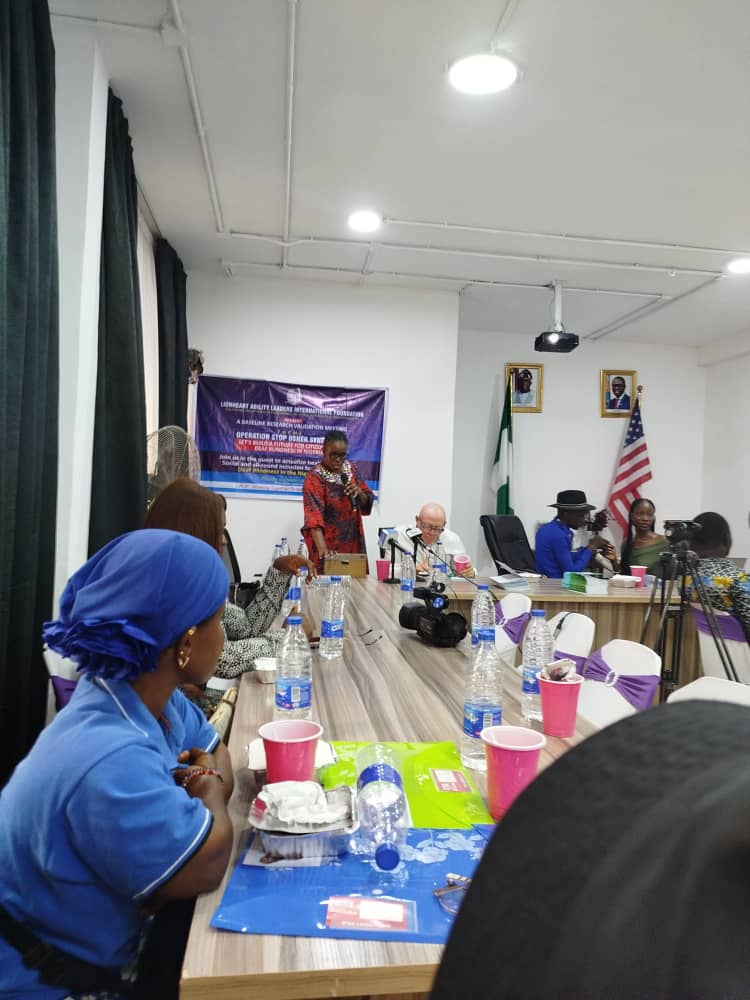
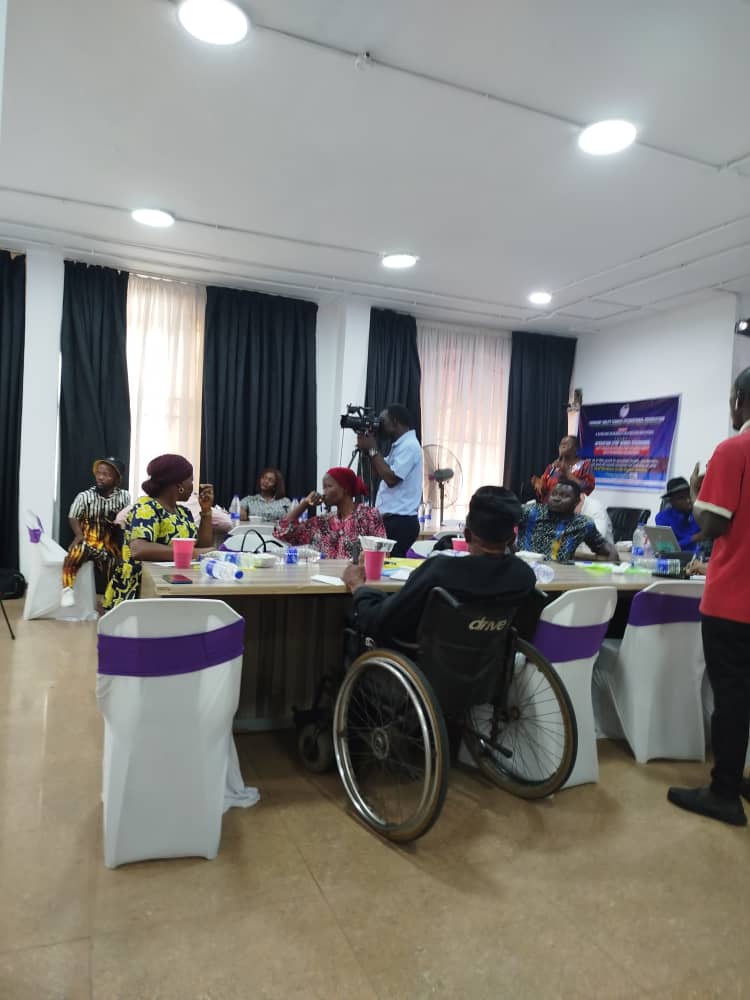
Okelola warned that the continued lack of action on this front threatens future generations. “If we fail to equip medical professionals with the necessary knowledge and tools, we risk passing on this debilitating condition to future generations, leading to not only physical but also socio-emotional complications.”
In addition to Okelola’s call, Mrs. Adejoke Opeyemi-Ogungbire, Executive Director of Desire Health Inclusive Organization, highlighted the broader challenges faced by persons with disabilities in accessing healthcare services. Citing findings from a previous research study, Opeyemi-Ogungbire noted that persons with disabilities, particularly the deaf and deaf-blind, often experience discrimination, stigma, and neglect in healthcare facilities. This has led many to avoid hospitals, opting instead for self-medication or other risky alternatives, thereby jeopardizing their health and that of their families.
“This is a violation of their fundamental human rights,” Opeyemi-Ogungbire said, emphasizing the need for comprehensive training of medical practitioners to ensure inclusive healthcare services.
In response to the concerns raised, Mr. Mac-Humphrey Browne, representing the Lagos State Office for Disability Affairs, commended the efforts of Lionheart Ability Leaders International Foundation and promised to escalate the research findings to the General Manager of the Lagos State Office for Disability Affairs. Browne also called for more research to better understand the causes of disabilities in various parts of the state, noting an observed increase in the prevalence of disabilities in Nigeria.
Okelola expressed gratitude to the Disability Rights Fund for its continued support in advancing the inclusion of persons with deaf-blindness in Nigerian society. He also announced that efforts are underway to officially launch the deaf-blind community as a distinct disability cluster in the country, which will work closely with other disability groups to ensure equal opportunities for all.
As the conversation around Usher Syndrome gains momentum, the need for action has never been more urgent. With collaborative partnerships, Nigeria has the potential to curb the spread of this devastating condition, ensuring that future generations are protected and that persons with disabilities have equal access to the healthcare services they deserve.

